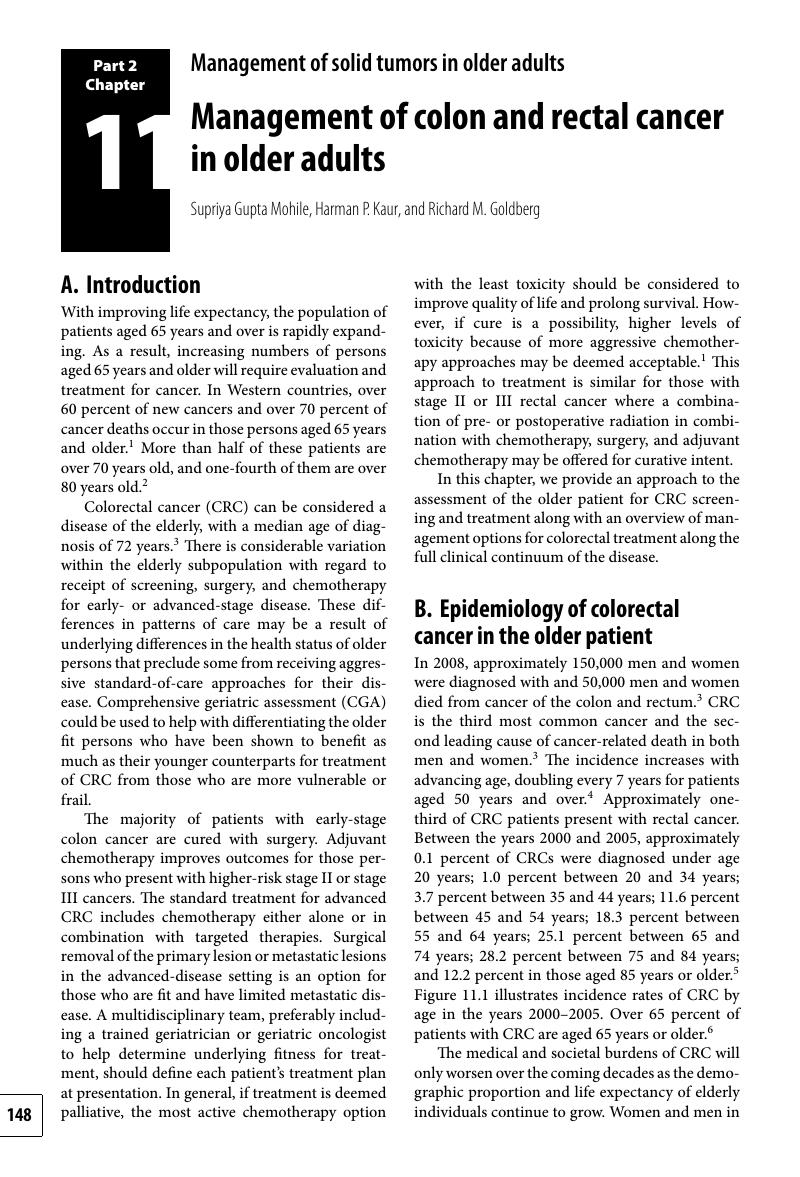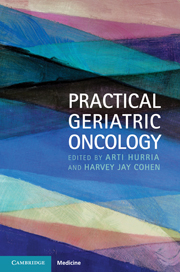Book contents
- Frontmatter
- Contents
- Contributors
- Part 1 Key principles in geriatric oncology
- Part 2 Management of solid tumors in older adults
- Chapter 7 Management of breast cancer in older adults
- Chapter 8 Management of lung cancer in older adults
- Chapter 9 Management of head and neck cancer in older adults
- Chapter 10 Management of esophageal and gastric cancer in older adults
- Chapter 11 Management of colon and rectal cancer in older adults
- Chapter 12 Management of renal and bladder cancer in older adults
- Chapter 13 Management of prostate cancer in older adults
- Chapter 14 Management of ovarian and endometrial cancer in older adults
- Part 3 Management of hematologic malignancies in older adults
- Part 4 Symptom management and supportive care of older adults
- Index
- References
Chapter 11 - Management of colon and rectal cancer in older adults
from Part 2 - Management of solid tumors in older adults
Published online by Cambridge University Press: 05 August 2011
- Frontmatter
- Contents
- Contributors
- Part 1 Key principles in geriatric oncology
- Part 2 Management of solid tumors in older adults
- Chapter 7 Management of breast cancer in older adults
- Chapter 8 Management of lung cancer in older adults
- Chapter 9 Management of head and neck cancer in older adults
- Chapter 10 Management of esophageal and gastric cancer in older adults
- Chapter 11 Management of colon and rectal cancer in older adults
- Chapter 12 Management of renal and bladder cancer in older adults
- Chapter 13 Management of prostate cancer in older adults
- Chapter 14 Management of ovarian and endometrial cancer in older adults
- Part 3 Management of hematologic malignancies in older adults
- Part 4 Symptom management and supportive care of older adults
- Index
- References
Summary

- Type
- Chapter
- Information
- Practical Geriatric Oncology , pp. 148 - 170Publisher: Cambridge University PressPrint publication year: 2010



